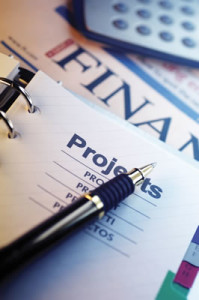 By: Ellan Dickieson, Family Service PEI
By: Ellan Dickieson, Family Service PEI
As a young professional who harps on others about being financially responsible, I figured it was time to start practicing what I preach. With the credit card debt paid off and the student loans on the way down, it was time to stop relying on the credit card for emergencies, and actually start an emergency fund. An emergency fund for what, I asked myself. I don’t own a house, or have kids; I have a full time job…what could possibly go wrong?
Oh yes- I do still have those wisdom teeth, and the car that, knock on wood, has been really good to me, but has travelled +250k kilometres, and I did take a job in the not-for profit sector.
Frankly, everyone has multiple reasons to start an emergency fund. The first step to starting is understanding what an emergency fund actually is: An emergency fund is cash that you’ve saved up for the sole purpose of helping you maintain a normal life through the emergencies that life hands you. Most of the time an emergency fund just sits there earning a bit of interest, until you actually need it.
Some people may view this as a cruel sort of punishment. Here you have money sitting in the bank just staring at you waiting to be spent. Life is short; you should be using that money now, living life to the fullest, right?
Actually, it is quite the opposite. Having an emergency fund means you have peace of mind. You don’t have to live life holding your breath, hoping that nothing bad happens. You are armed, prepared, and ready to tackle whatever comes your way!
Getting Started:
Set a realistic goal of how much money you want to have in an emergency fund. Start with a small amount, such as $250 or $500. This is a goal that you should be able to reach in a realistic time frame.
Next break that goal down into smaller pieces. How much can you afford to contribute per pay period? Perhaps it is $10, $20, or $50. Regardless of the amount remember, any savings is always good savings!
There are numerous options for finding that extra money every month; you may simply have to get creative. Could you make more money by getting another job, working more hours, or turning a hobby into income? Or perhaps spend less money, by packing your lunch, carpooling, writing a grocery list, or bottling your own wine…?
Make It Automatic:
The easiest way for me to save money is to not have to be responsible for taking it out of one account and putting it in another. With online banking I was able to set up a second online savings account, separate from the one I normally do business with. This way, the money is automatically swept from one account to the other, and accumulates interest at a better rate.
The other benefit of my online savings account is that the money is not easily accessible. I can’t just run to the ATM and grab the cash, there are a certain amount of transactions I can make before I am charged, and there are limitations and rules. These limitations give me enough time to think carefully before I act.
Please note that different banking institutions offer different products, and therefore I would encourage you to shop around for something that suits your needs.
Continue to Set Targets:
With the money automatically being transferred, before you know it you are going to open up your online banking and see that $500 sitting there. And what a glorious feeling it is! Your account will have enough money in it that you will start earning a bit of interest and you will start to feel in control of your financial situation.
So, when you have something good going, keep on rolling with it! Set another goal of $1000, then maybe 1 month’s worth of living expenses, 2 month’s worth etc. If something unexpected comes up along the way don’t be afraid to tap into that fund, that’s what it is there for. Remember that paying to fix the car using the credit card means paying interest, and paying with your cold hard cash doesn’t!
The Challenge:
This all sounds lovely, does it not? But in the real world there are challenges. The first challenge I faced was not finding the money to save, but not touching the money I had saved. What can I say, we live in a society that focuses on the now, and when friends are heading to Vegas NOW, well I want the money NOW! Given my desire to travel and see the world, I have started a separate travel fund. For others this may be a “splurge fund”. Point being, do what you have to do to not touch the emergency fund.
Remember, life can throw us curve balls, and although we cannot always control what comes our way, we can prepare ourselves. Don’t forget, luck favours the prepared!
